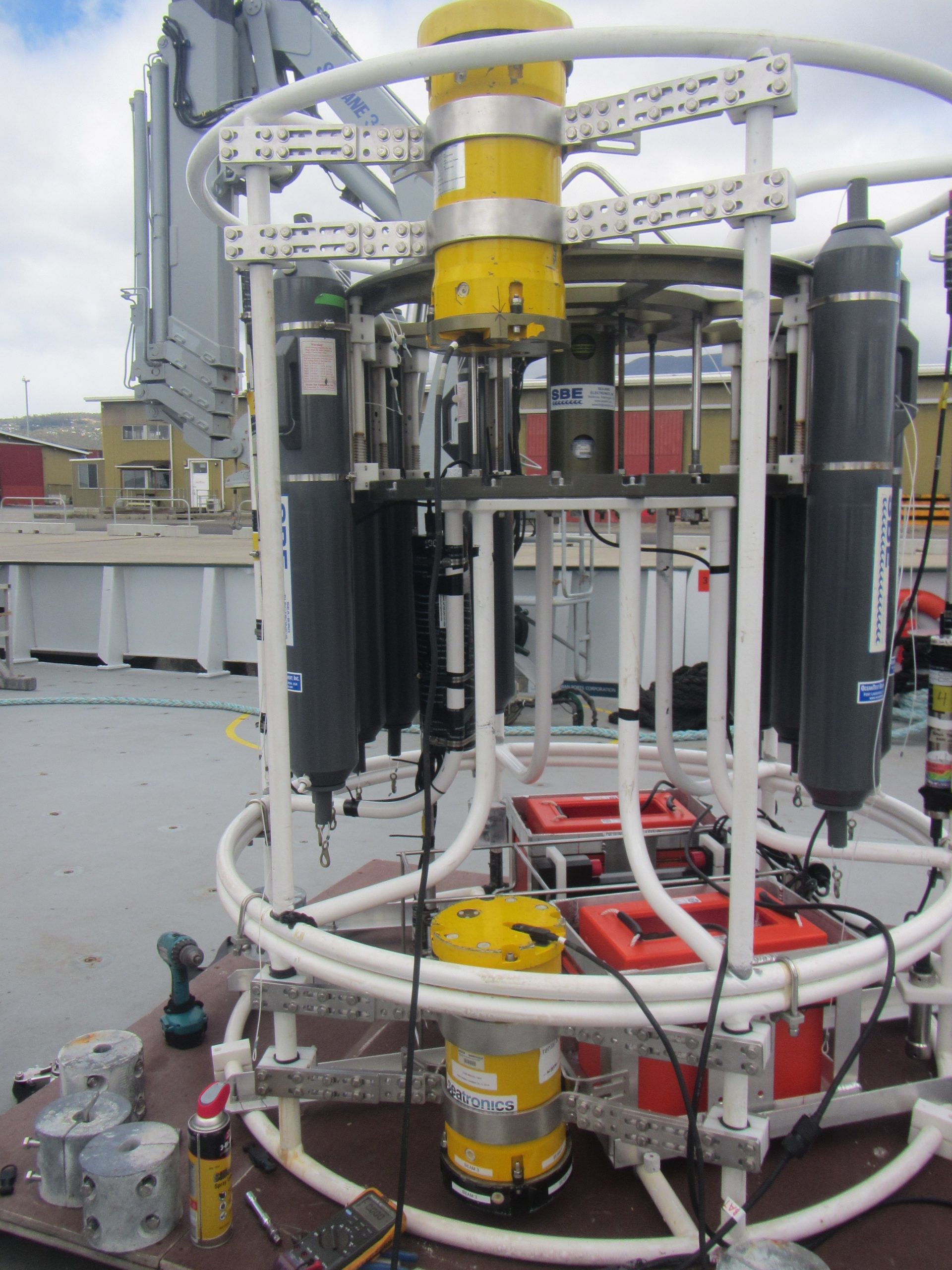If you’ve been paying any attention at all to the news in the last, say, two decades, you will know that the temperature of the ocean is increasing. Many national and international agencies and non-profit organizations have devoted funding to study these phenomena and they all point to the same answer – Earth’s ocean is getting warmer. Understanding how the … Read More
Revelle: Wellness In the Waves
There’s a science to staying healthy on a boat that dishes endless supplies of savory meals, pastries, snack foods and deserts. We’re confined to a 284-foot ship with a daily commute of scaling a flight of stairs and walking a few dozen feet to our workspaces. This, combined with a typical 16-hour workday, makes an exercise routine a necessary part … Read More
Falkor: Chlorophyll is Key to the Biological Oceanographer
This week Pete and I started doing our experiments with water collected from the CTD profiles. We are using the water to conduct chlorophyll measurements, particular organic matter contents, nutrient samples and incubation experiments. All the data that will be collected from our water samples will help us to piece together the possible mixing that is being caused by the … Read More
Revelle: Mooring’s Back!
Most research cruises leave their moorings in the water for months or years, but not these guys. They’re recovering a mooring they just deployed seven days ago. After it’s back on deck, they’ll pull off the data and will re-release it again in a few days. All in the name of science! The instruments on this mooring have been gathering … Read More
Falkor: Connecting Physics and Biology
The connection between physical processes in the ocean and the organisms that live in it can be summed up with one word: Nutrients. The movement of nutrients through the ocean by tides, gyres, eddies, and waves are in fact the reason we can exist on Earth. That’s a bold statement, I admit, but let’s examine it a bit more closely. … Read More
Two ships passing in the…. TTIDE
Well, not just passing, but collaborating in a very unique way. By the time Falkor started steaming out of Hobart, the RV Revelle had been at sea for a week and a half, deploying their record 15 moorings and starting CTD-LADCP profiling along the continental slope of Tasmania. With the Revelle’s head start on the science, we decided to make … Read More
Falkor: Working in an Unpredictable Sea
Yesterday found me standing on the aft deck of Falkor, gripping a rope to hold the swinging CTD rosette steady as we lowered it over the side and into the ocean. The rogue wave that crashed across the deck managed to soak my work boots and my jeans up to the knee. Even in fairly good weather, ocean fieldwork is … Read More
Falkor: CTDs Away!
Our first day of sailing consisted of voyage preparation. This included tying everything down and expecting the worst sea conditions. Pete and I managed to get the wet lab set up for the experiments that we will be conducting. We are trying to find out how the biology in the Tasman Sea is affected by the internal waves through … Read More
Falkor: Calibration Celebration
Good scientific data is wonderful, but data is not very useful if it isn’t accurate. The tricky bit about using the ADCP on this cruise is that it will be attached to the CTD rosette. This is called a “Lowered” ADCP or LADCP. The CTD carries batteries on it that have metals and electrical currents that can interfere with the … Read More
Revelle: A Mooring Milestone
We hit a huge milestone on Monday: we dropped mooring number 15, the last of our planned long-term moorings, as the sun set over the Tasmanian Landscape. All of the ingredients of the moorings—40 oversized spools of cable, 15 giant orange buoys, 50 thousand pounds of anchors, clusters of spherical glass balls enclosed in oversized yellow “hard hats,” and hundreds … Read More

